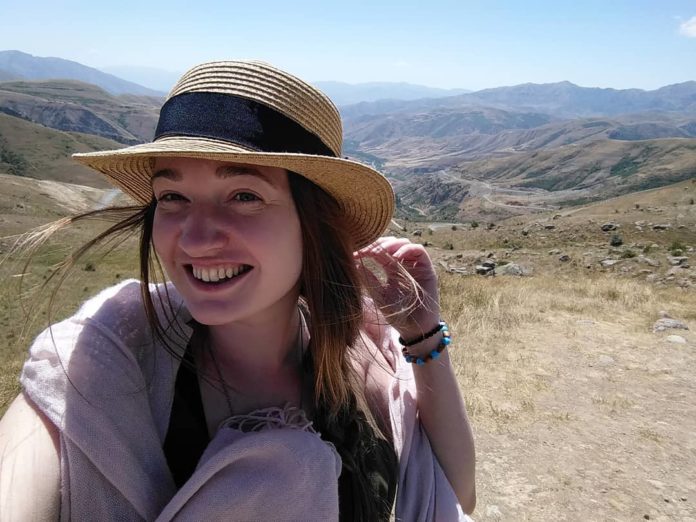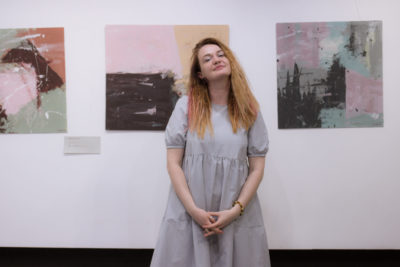YEREVAN/NOVOSIBIRSK — Sasha Zaitseva is a modern Russian poet, art activist and editor. She is the author of the collection of poems titled The Snow That Was Not, published in Germany, laureate of several international literary competitions, a participant in art projects in Siberia, St. Petersburg and Moscow, and a senior lecturer at Novosibirsk State University.
Sasha was born near Krasnodar, raised in Kazakhstan, now lives between two cities, Novosibirsk and St. Petersburg. She has traveled to 20 countries, and two years ago she spent almost six months in Armenia in a spiritual and creative retreat. After that, she released the album of melodies, “Calluna,” dedicated to Armenia, and participated in the first ArmArtFest-2021 at the Armenian Embassy in Moscow.
Migration and the path as a lifestyle and creativity define Sasha Zaitseva. My conversation with her is focused on how Ariadne’s thread led her to the Ararat valley.
Sasha, it is written about you that you, as a poet, mix poetry with other types of art. Such an experiment is not new: someone painted on sculptures, someone exhibited texts in frames, etc. How justified are such experiments?
Yes, indeed, the intersection of various arts is my passion. I have done projects that combine word and music, word and modern exhibition facilities, word and performance, etc. For example, once I launched a campaign where I pasted my poems on message boards in different cities where I was, among “garage sale” and “manicure at home.” Recently I have created a series of abstract paintings, where my lines “flourish” through the coloristic substance. As mountains appear at the junction of lithospheric plates, so for me the most powerful creative energy is born at the junction of the arts. Yes, this is not new; “there is nothing new under the sun,” and “I stand on the shoulders of giants.” How it is justified? I don’t know, it’s not for me to judge. I just follow my Muse — almost by touch, because I can’t imagine any other way to live my life.
In the life of a 21st-century person, what place does poetry have?












